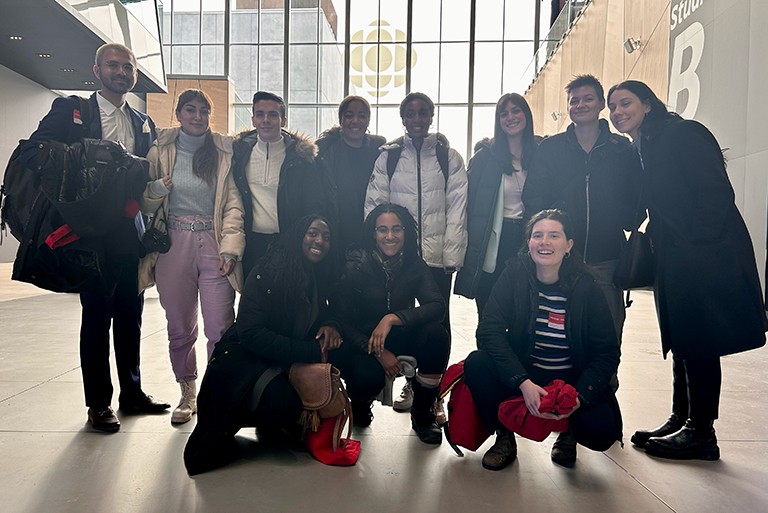Concordia’s Journalism program teaches solutions-focused news stories in tandem with CBC Montreal
 Clément Lechat: “Learning solutions journalism shaped the way I now perceive my role as a journalist.”
Clément Lechat: “Learning solutions journalism shaped the way I now perceive my role as a journalist.”
Students in Concordia’s graduate course The Digital Magazine (JOUR 528) collaborate every year with CBC Montreal to create multimedia stories.
Amélie Daoust-Boisvert, assistant professor in the university’s Department of Journalism, tasks her students with writing stories that take a solutions-journalism angle — that is, using an approach that highlights successful responses and initiatives aimed at addressing societal problems. The theme this term was “finding a safe space in Montreal.”
“The students were very enthusiastic and creative from the start,” Daoust-Boisvert says. “I am so proud of these stories! They’re so powerful and important.”
She explains that the theme was inspired by students in her Intermediate Reporting (JOUR 504) graduate course in the fall. They were developing stories on marginalized individuals who brought about solutions in their own communities.
“The students had a wide range of interpretation of the theme,” Daoust-Boisvert says. “This is exactly what I was hoping for. Their stories are important, original and timely.”
The stories that emerged this term on CBC were about a non-profit supporting emerging Black chefs, a library dedicated to Ukrainian literature, an initiative that connects people with Alzheimer’s through dance and a centre offering new ways to cultivate well-being in Black communities.
‘The potential to change the narrative’
Graduate Diploma in Journalism student Clément Lechat says this year’s theme inspired him.
“Instead of depicting marginalized communities as a source of problems, or the victims of a situation, we show that they have agency to spark positive change in their lives,” Lechat says.
He and his group worked on the story of the Ukrainian literature library.
“Solutions journalism has the potential to change the narrative on marginalized groups,” Lechat adds. “Learning this approach shaped the way I now perceive my role as a journalist.”
‘I want to not only inform people but help them as well’
Osamede Iyare, a student pursuing a Graduate Diploma in Visual Journalism, worked on the story about emerging Black chefs.
“This was an important story to tell because a lot of positive things that happen within the Black community are usually highlighted either during Black History Month or a sporting event,” Iyare says.
“I wanted to write this story to break that mould and show that Black stories matter all year round. I also wanted to highlight that the work being done in communities never stops.”
Like Lechat, Iyare says the course inspired her by introducing her to a new approach to storytelling.
“This form has changed the way that I visualize stories now because I want my publications to not only inform people but help them as well.”
Daoust-Boisvert relates that she’s content that the experience has resonated with her students.
“Solutions reporting was a challenge for them and they really worked hard,” she shares. “The final stories are great examples of best solutions reporting standards.”
Find out more about Concordia’s Department of Journalism.


